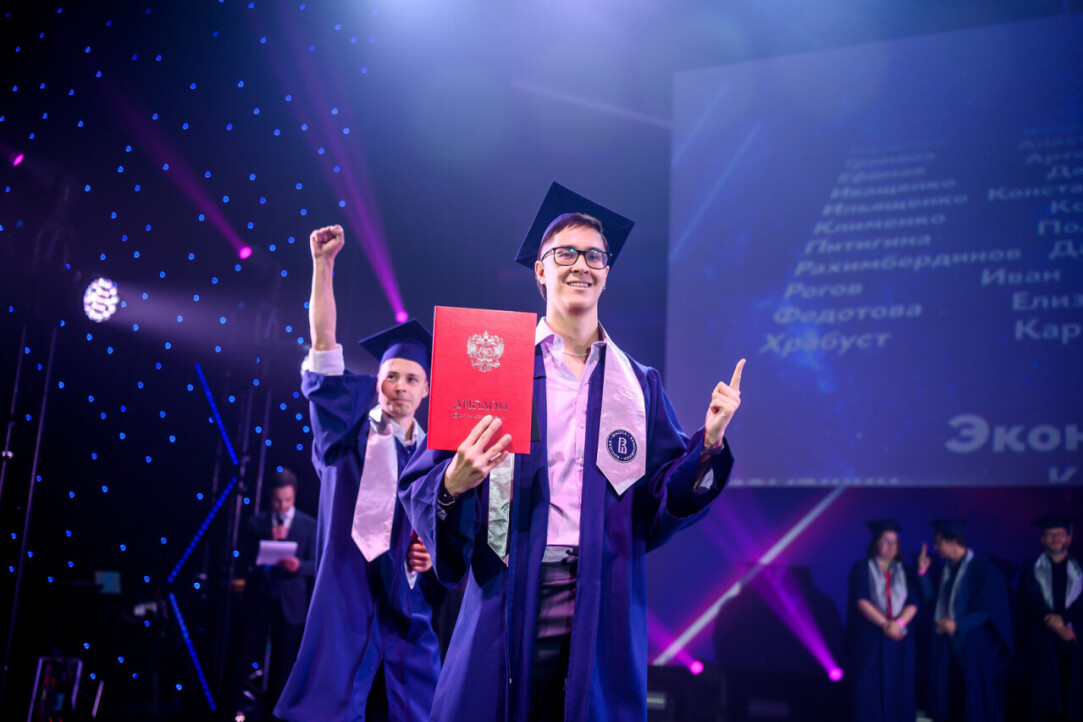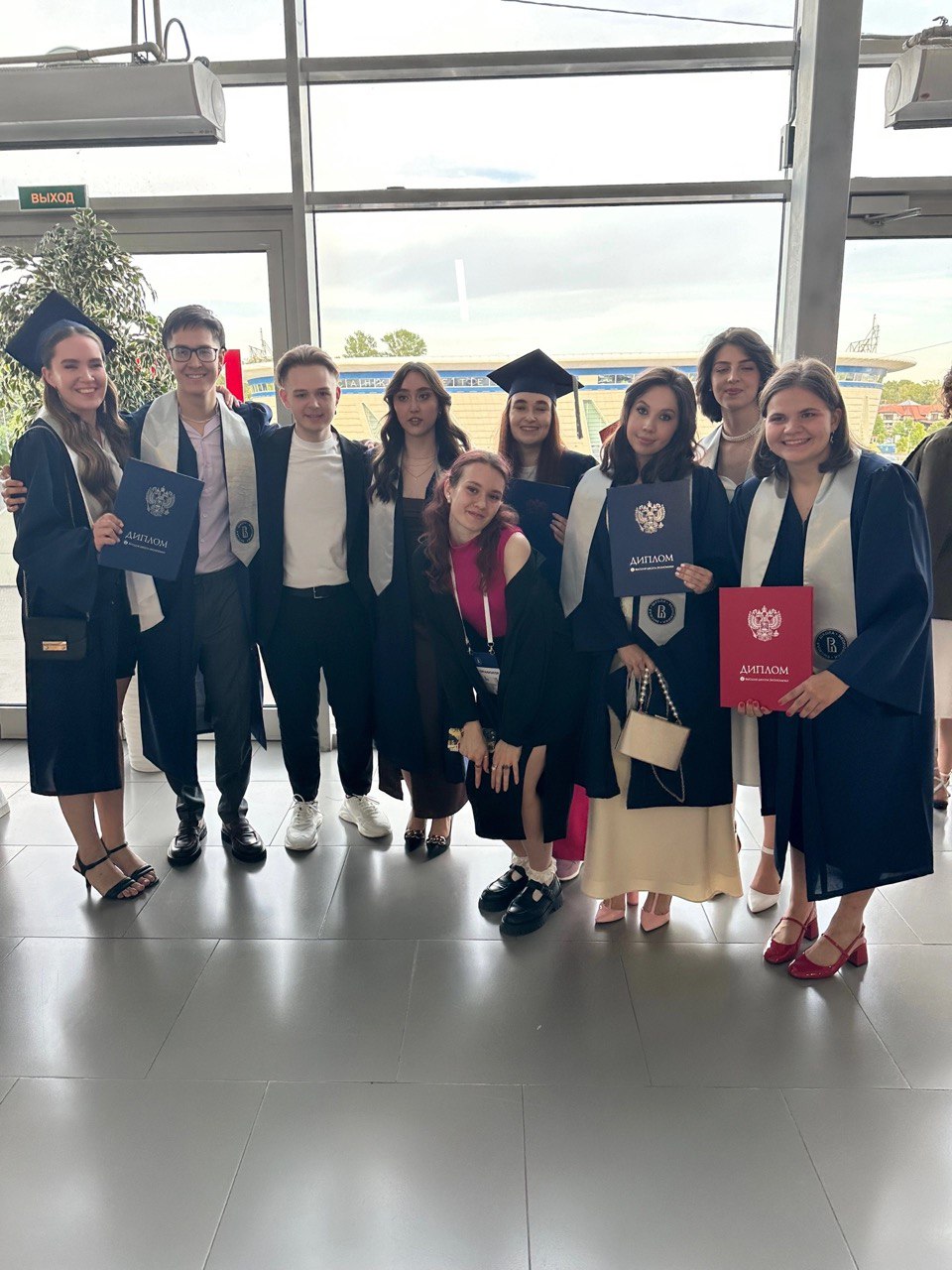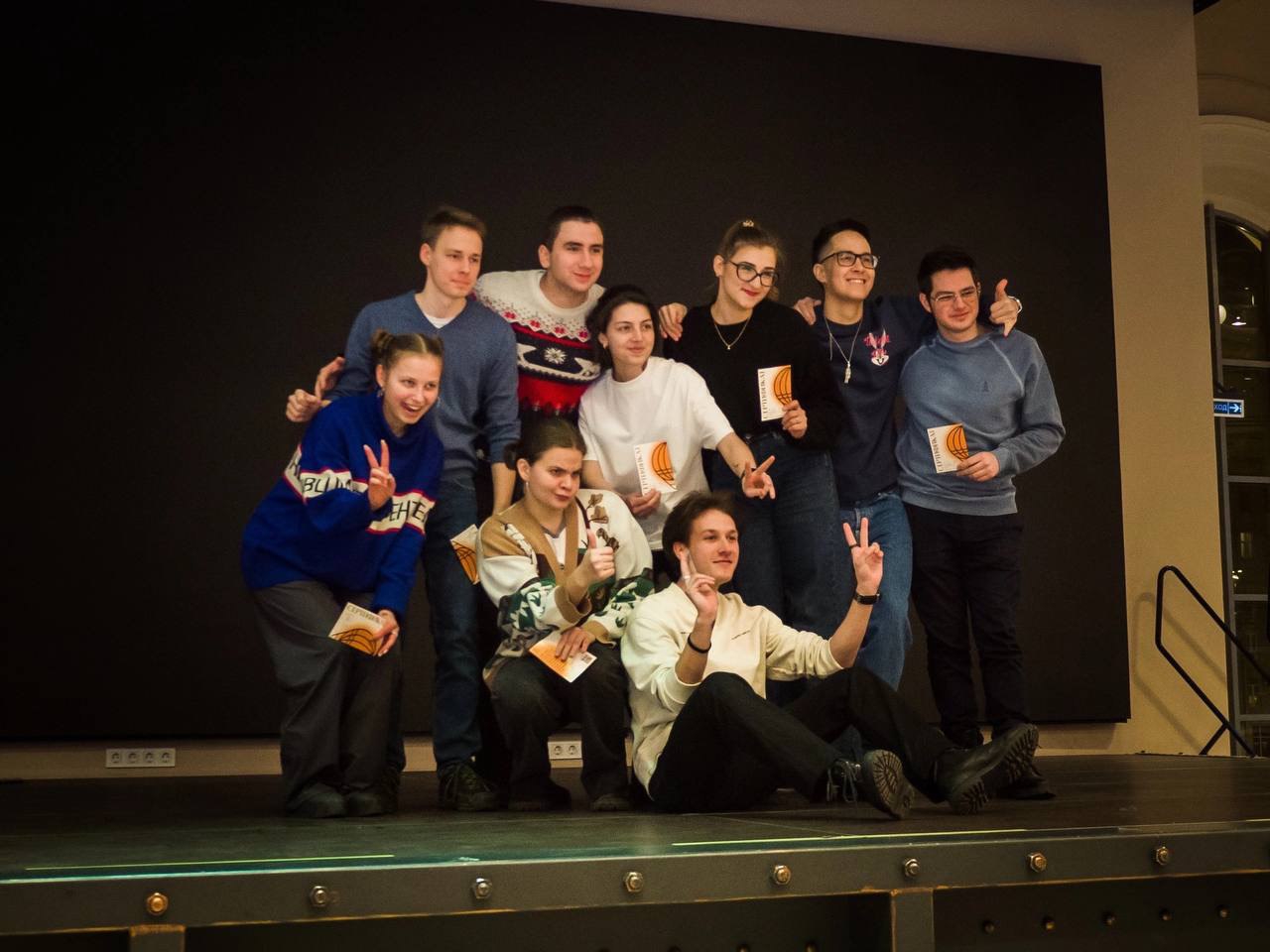'At HSE University-St Petersburg, Interesting People Are All Around You'
Daniyar Rakhimberdinov is a graduate of the School of Economics and Management of 2024. During the four years of the Bachelor's programme, Daniyar spent very vividly: studied artificial intelligence and founded a student club devoted to breakthrough technologies. He set his heart on the dream to establish his own business and started his career path in a large IT company. Daniyar attended a summer school in Italy and joined the Student Council. Find out how the graduate sees his future development and what events he will remember with warmth in the interview.

— Daniyar, could you please tell us how you happened to join HSE University-St Petersburg?
— I studied in a private school with an economic bias in Kazakhstan, and then I wanted to immerse myself into something more technical and enrolled in a mathematical lyceum. At first, the studies gave me an energy boost but at some point, I got oversaturated with all of these and decided to go into something more applied. This is how I enrolled in the programme 'International Bachelor's in Business and Economics' at HSE University-St Petersburg. However, intense mathematical classes played their part: I got accepted to the university via the mathematical olympiad.
Why HSE University-St Petersburg in particular? Firstly, this is where my sister studied, and she loved it. Secondly, I am mesmerised by St Petersburg—it seems to me that it is the most wonderful city for life among all I have ever visited. There is a third reason as well: I was really interested in getting into an international environment. HSE University-St Petersburg is famous for its mobility programme and the fact that there are a lot of international students I wanted to get acquainted with.
— Did you manage to do it?
— Yes, I had such an opportunity—I happened to find myself in an international group that gathered students from various countries. From the very beginning, I felt this international atmosphere and made friends with everyone. In my third year, I attended a summer school at one of the best universities in Italy in the realm of economics—Bocconi University. I studied investment in small capitals there—which means start-ups: notably, from the point of view of investors and not entrepreneurs. Lots of my coursemates work in the financial sphere, and I didn't dive into it that deep. However, the foundation provided by HSE University helped me to pass the selection and complete my studies.
— What can you say about the studies at HSE University-St Petersburg in general?
— I like that 'International Bachelor's in Business and Economics' strives to cover many things: we had courses in econometrics, mathematics, statistics, marketing, finance and soft skills. I tried myself at everything and chose the sphere which I was truly keen on. I have set the goal to open my own business in the future and tried to get practical skills from each course which would help me do it.
For instance, in the HR course, we immersed ourselves in the management of various teams well. After the classes in econometrics and data analysis, any analytical tasks—from formulating hypotheses and collecting data to statistical testing—seem not so difficult. In the courses 'Performance Management' and 'Corporate Finance', we immersed ourselves in financial modelling, where we looked at managing not only large corporate projects but also small start-ups.

— Did you manage to try your hand at science as well?
— Yes, at HSE University-St Petersburg, it is very easy to get into the scientific environment. As our professor of English loved to repeat: 'First of all, HSE is a research university, any project is a research'. This is really true: we got acquainted with science already in the first year during the research seminars. But more profoundly, I tired myself in this sphere thanks to the Centre for Market Studies and Spatial Economics.
Our programme allows us to be multi-faceted specialists, so my research was at the junction of management and economics—I studied price setting at marketplaces 'Ozon' and 'Wildberries'. On the one hand, I was interested in putting into practice the models of assessing the demand to gain new knowledge about business. But on the other, I didn't want to go fully into numbers but look at how customers behave. There I used the models of artificial intelligence which we also studied in the programme.
— You also founded a student club dealing with AI! How did it start and how is the club doing now?
— I studied AI not only in the programme but also in a minor course—this was an entry point. We created this club together with a friend. HSE University is an easy place to find like-minded people: you come to a canteen and hear how people at the next table discuss a new cryptocurrency or another amazing project. It's great that at HSE University-St Petersburg, interesting people are all around you.
We wanted to create a community where everyone would be able to share breakthrough technologies: from AI to blockchain. We took this idea with burning eyes to Aleksandr Ugriumov, Head of the Unit for Extracurricular Activities. He eagerly supported us and only asked why it was important for us. We explained that it was personal—not just for a point in our resumes but to get to know ourselves better and influence the future somehow. Who knows, maybe, thanks to our club, someone will take a serious interest in artificial intelligence. We have already held several lectures and got positive feedback from other students but postponed it because of our theses. Now, we are looking for successors to hand over the club to good hands.
— What other events from the extracurricular life will you remember with warmth?
— I think I will miss our meetings with the team of the Student Council. In extracurricular life, you are your own director: you meet your friends and you just chill out for several hours. It really boosts your energy!
In the Student Council, I was a delegate of the educational programme and engaged in lots of things: designed the Weeks of Mental Health and Practical Medicine, cooperated with international student clubs and managed social projects. Of course, it was a very useful experience. Thanks to it, I realised that in teams, I value openness to various ideas and feedback the most. Now, at job interviews, the first question I ask is about the corporate culture. 'T-Bank' where I work now turned out to be close to me in spirit.

— Is 'T-Bank' your first workplace? How did you get this job?
— Yes, it is my first job at a large company and on IT products straight away. The company has an internship programme for students 'T‑Bank Start', I have long heard a lot about it. To be accepted, at first, one has to get through online tasks on logic, probability theory and business analysis.
In the second year, without even thinking about the job, I logged in and left my solutions, it was a way to train my brain. Once, I even designed an MVP of a new application but it didn't result in anything—perhaps, my resume wasn't strong enough. Fortunately, HSE University-St Petersburg provides a lot of opportunities to improve it over the studies. For instance, my team took second place in the hackathon 'Job Matching': we offered natural language processing models for matching resumes and job vacancies. Our work was named advanced and was expected to decrease staff turnover by 25%—I mentioned this achievement in my CV.
In February of this year, I took a shot again and was invited to an interview! The meeting with employees went calmly, I was asked to solve some cases. I formulated some hypotheses on how to improve user experience with the help of internal services and data of 'T-Bank' and told about my educational projects.
— What tasks do you perform in 'T-Bank'?
— My position is a technologist. It is a product manager who works directly with technologies. My task is to come up with a plan on how to implement a business idea in terms of technologies. On the one hand, it requires a product vision—one has to understand what is important for the company's clients and what problem we are solving. On the other, I work with IT technologies. Thanks to HSE University, I managed to link both directions together and use a data-driven approach when all the work is based on data.
Our team fights scams with users' data. I do a lot of research work: for instance, recently, I tried to solve how to track in one app session if it is a scammer or not. I happen to face completely new questions every day—there are almost no routine tasks, and it gives me a lot of energy.
An ability to interpret data and turn them into valuable insights which can be implemented in practice is one of the most difficult skills one has to master. In this, I got a lot of assistance from my thesis supervisor—Alex Suzdaltsev, Research Fellow of the Centre for Market Studies and Spatial Economics. Prof Suzdaltsev shared his experience and introduced me to modern methods in international research.
— What would you compare the atmosphere in 'T-Bank' with?
— 'T-Bank' has a very startup-like atmosphere, each team is a combat unit. All quarterly plans which we follow go from inside. While top management acts more like mentors: guides and gives advice. There is no strict corporate culture, and it is awesome.
— What do you see your further development like?
— The work in big companies provides a lot of opportunities—this is the only place to create a product which influences thousands of users. For the next several years, I see myself working for the largest IT companies: developing several projects and showing the best of myself. When I have enough competencies, I will start my own business. Big companies offer resources to realise one's entrepreneurial potential. I recommend all the graduates joining large businesses at first to leave as excellent professionals in three to five years.
— Three reasons to enrol in HSE University-St Petersburg.
— Students choose an educational track themselves. One can do it with the help of a minor or elective course. Besides, no one prohibits you from joining the courses of other faculties and programmes as a guest student. Because, first of all, we are HSE students, and only then—students of our educational programmes. During my studies, I chose two of such courses. I attended the first one on logistics together with the master's students, it was interesting and unusual. The second course covered industry markets—I signed up for it to get the knowledge which I lacked for my thesis.
Professors' openness. It seems to me that the courses are getting better every year because the professors bend an ear to the ideas and requests of students. Obviously, all the courses adjust to global trends so that graduates leave with up-to-date knowledge. Now, for instance, there are a lot of courses on AI.
Student community. The best of the best enrol in HSE University, and student time is an amazing opportunity to meet people as talented as you are and come up with something together. I have built friendly relations with many people. I hope they will be for life.

